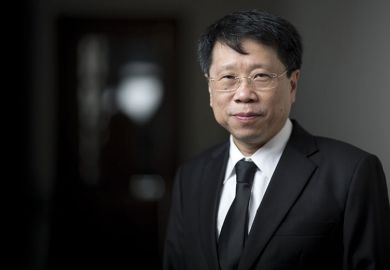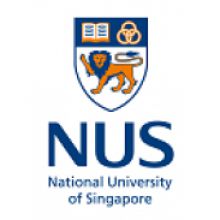An academic has urged researchers to avoid making submissions to the National University of Singapore (NUS) Press after it cancelled his contract to publish a book that was critical of the Thai monarchy.
Coup, King, Crisis: A Critical Interregnum in Thailand, edited by Pavin Chachavalpongpun, a prominent overseas Thai critic, is a collection that examines Thailand’s political transition from 2014 to 2019, through a series of essays by 14 Asian studies scholars.
It had been due to be published by NUS Press, but the publisher reversed course in March 2020. Criticism of the monarchy is illegal in Thailand because of lèse-majesté laws.
The title was subsequently picked up by Yale University’s Council on Southeast Asia Studies and released in December 2020.
Now that the book is out, Dr Pavin has appealed to NUS to investigate the decision-making behind his case. He also called for other academics to refrain from submitting to or conducting peer review for NUS Press, but stressed that he was not asking for a boycott of the publisher’s titles, because he did not wish to “harm other scholars”.
Dr Pavin, an associate professor in Kyoto University’s Centre for Southeast Asian Studies, is a controversial figure who has been living in Japan since 2012.
Dr Pavin told Times Higher Education that “it seems reasonable to assume that NUS Press’ decision was due to political pressure”. “The unexplained and last-minute decision violates the fundamental principles of academic freedom,” he said.
“I urge our colleagues to withhold their seal of professional approval from future NUS Press publications by not participating in a demonstrably problematic review and publication procedure.”
Peter Schoppert, director of NUS Press, told THE that cancelling the book contract was “not something a publisher ever does lightly, but the decision was made after consultation with our stakeholders…A university press has a wide variety of internal and external stakeholders, including those authors and academics who are expressing their concerns.
“As a publisher based in the [Asian] region, in a home market two orders of magnitude smaller than the US, the decisions we take, considering our stakeholders’ views, may be different than those taken by presses without a stake in the region,” he explained.
“Naturally, this has led to a series of discussions of how to take our publishing decisions in ways that avoid such unpleasant shocks. These conversations on how we can do our work better will continue, as we move forward from this regrettable situation.”
Mr Schoppert said that they had apologised to the author for the lateness of the decision and tried to help find a new home for the manuscript “to minimise the inconvenience to him and his contributors”. The publisher also acknowledged “the deep concerns expressed” by other academics.
A petition about Professor Pavin’s case, by Concerned Scholars of Southeast Asian Studies (CSSAS), has been signed by more than 400 academics.
“This was not a case of a ‘desk rejection’, where an editor decides that a book does not have academic merit or does not achieve the marketing goals of the press: Coup had received glowing peer reviews, and a publication contract with NUS Press had already been signed [in 2019],” CSSAS wrote.
Register to continue
Why register?
- Registration is free and only takes a moment
- Once registered, you can read 3 articles a month
- Sign up for our newsletter
Subscribe
Or subscribe for unlimited access to:
- Unlimited access to news, views, insights & reviews
- Digital editions
- Digital access to THE’s university and college rankings analysis
Already registered or a current subscriber?










